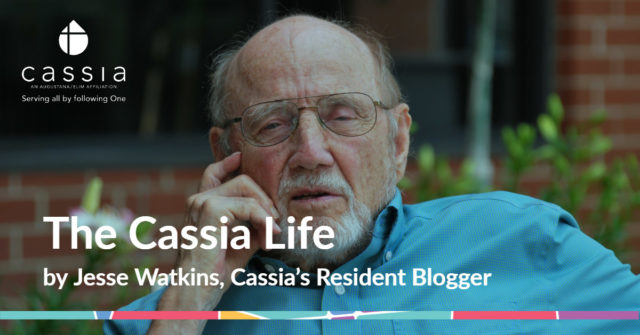ZOOM!
“We’ll meet this week as usual,” said David, my men’s group leader. “The nine of us, at my place, sort of. I’ll be sending you the how-to of ZOOM! software that works for get-togethers when you can’t be there in person, like during a pandemic. Like now!”
David explained further, “You will each need a computer or smart phone, with camera (video) and sound (audio). We’ll all be able to see and hear each other for our entire two-hour meeting.”
David in this case is David Scheie who lives with his wife Lee Johnson-Scheie in Golden Valley, Minnesota, a Minneapolis suburb. The men’s group was formed 15 years ago by David and a few friends including myself. We gather twice monthly in a member’s home, openly exploring life habits, good and bad, and problems, mutual and individual.
The coming of coronavirus, the respiratory illness, COVID-19, that it causes, and the resulting world-wide pandemic presented the men’s group with a problem. To help decrease the spread of the sometimes fatal COVID-19, gatherings small and large are avoided. Utilizing Zoom is a way to hold meetings, albeit virtually, to reduce the possible transmission of virus while sustaining a level of connection.
Meetings using Zoom have been quite satisfactory, not quite like in-person meetings, but surprisingly good, testify David and others. The cost to David of the Zoom software is $16/month and he also uses it in his business.
The web site for Zoom is zoom.usa. Other software programs function similarly to Zoom, Microsoft’s Team, for example. And Facebook has a Zoom-like software.
There are, of course, other ways than holding Zoom meetings to help in the struggle to stay connected to family members, friends and loved ones while maintaining a distance. Good friend Phil Manz called to say that one good way is to maximize use of the telephone.
“Call! Call! Call! and Talk! Talk! Talk!” urged Phil, who is himself likely to call me any time, and is always positive on the nights and days ahead.
Mary Burns, a senior reaching 90 this spring, contends that the telephone helps keep connection alive, pandemic or not. She talks daily with her two daughters, Chel and Kim. Chel lives in northeast Minnesota, Kim locally.
Mary says she is quite happy with her life in a senior community in the southern metro because of the many like-minded folks to visit with. You can visit OK and still maintain the recommended six feet separation, she points out.
Augustana resident Ken Murphy, 71, says maintaining connection includes being accessible to and looking out for your neighbors. He has shared home-made food items with me and others. Prior to making an essential trip beyond his own community he checks with certain neighbors and purchases needed items for them to decrease out-trips generally.
Barbara Egli of Augustana plays Scrabble on line to help bridge her own and others connection gap. Obviously a computer is required. A man she plays the game with plays especially well and is very quick, she reflects. With the game played on-line, she does not know the identity of other players.
Patty Reynolds, also an Augustana resident, says staying connected, whatever social distancing brings, is everything!” During ordinary times she and a friend connect several times in an afternoon by way of texting, and attend outdoor city park entertainment events evenings.
With these events likely to be cancelled for the summer ahead, due to the pandemic, finding evening outdoor entertainment events to attend will be difficult, notes Patty. They will search for something new, she says.
My own observation says creative thinking is called for when wanting to stay connected in spite of the isolation of staying home, perhaps alone. Married couples appear to have an advantage in that staying home for them is being together. However, two persons living together under one roof may be more vulnerable to the virus than one person living alone.
Senior communities, primarily skilled nursing residences, have been hit hard by coronavirus invasion and COVID-19 illness. Finding ways to maintain connection has been a challenge.
However, older seniors like myself, age 90, living in communities made up of a balance of assisted living and independent living (no assistance) may be able to bring about a level of safety for themselves equal to that of the general population of mixed age. Augustana in downtown Minneapolis is that kind of apartment community, with about 60% of residents following an independent living style.
The key to safety success is adherence to a rather strict set of guidelines (rules) including staying home, practicing personal hygiene including frequent hand washing, wearing a high quality face mask, preventing entry of non-essential persons, and residents maintaining strong internal immune systems.
Equally vital to these guidelines is maintaining connection with people you like and love.
This site contains information and content supplied by third parties. Information contained here involving any specific person, commercial product process, or service by trade name, trademark, manufacturer, individual proprietor or otherwise, does not constitute or imply Cassia’s endorsement, recommendation, or favoring by Cassia and/or its directors or employees.

